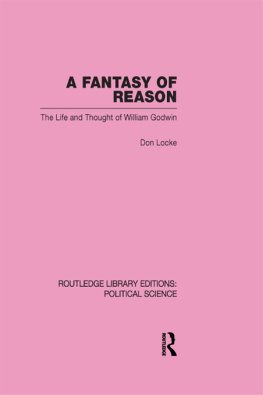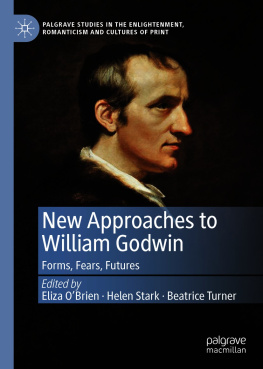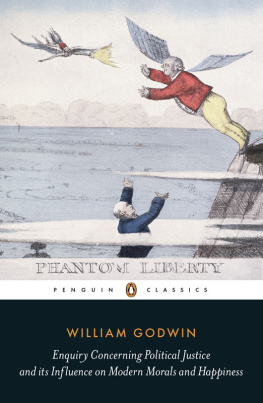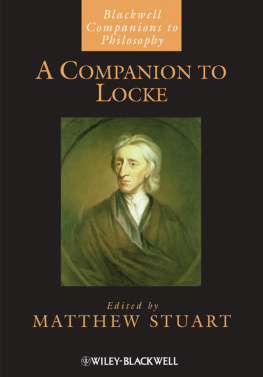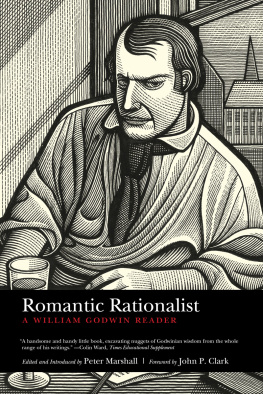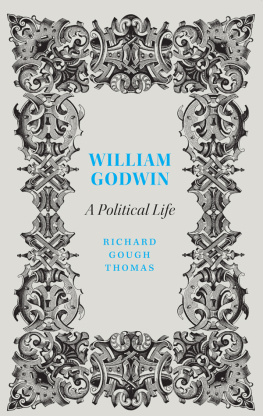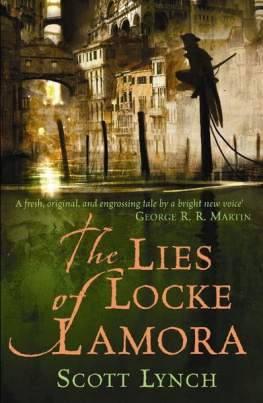Don Locke - A fantasy of reason : the life and thought of William Godwin
Here you can read online Don Locke - A fantasy of reason : the life and thought of William Godwin full text of the book (entire story) in english for free. Download pdf and epub, get meaning, cover and reviews about this ebook. year: 2010, publisher: Routledge & Kegan Paul, genre: Science. Description of the work, (preface) as well as reviews are available. Best literature library LitArk.com created for fans of good reading and offers a wide selection of genres:
Romance novel
Science fiction
Adventure
Detective
Science
History
Home and family
Prose
Art
Politics
Computer
Non-fiction
Religion
Business
Children
Humor
Choose a favorite category and find really read worthwhile books. Enjoy immersion in the world of imagination, feel the emotions of the characters or learn something new for yourself, make an fascinating discovery.
A fantasy of reason : the life and thought of William Godwin: summary, description and annotation
We offer to read an annotation, description, summary or preface (depends on what the author of the book "A fantasy of reason : the life and thought of William Godwin" wrote himself). If you haven't found the necessary information about the book — write in the comments, we will try to find it.
Don Locke: author's other books
Who wrote A fantasy of reason : the life and thought of William Godwin? Find out the surname, the name of the author of the book and a list of all author's works by series.
A fantasy of reason : the life and thought of William Godwin — read online for free the complete book (whole text) full work
Below is the text of the book, divided by pages. System saving the place of the last page read, allows you to conveniently read the book "A fantasy of reason : the life and thought of William Godwin" online for free, without having to search again every time where you left off. Put a bookmark, and you can go to the page where you finished reading at any time.
Font size:
Interval:
Bookmark:

by Routledge
2 Park Square, Milton Park, Abingdon, Oxon, OX14 4RN
by Routledge
270 Madison Avenue, New York, NY 10016
1980 Don Locke
A catalogue record for this book is available from the British Library
ISBN 13: 978-0-415-49111-2 (Set)
ISBN 13: 978-0-415-55569-2 (Volume 29)
The publisher has gone to great lengths to ensure the quality of this reprint but points out that some imperfections in the original copies may be apparent.
The publisher has made every effort to trace copyright holders and would welcome correspondence from those they have been unable to trace.
 The life and thought of William Godwin
The life and thought of William Godwin
by Routledge & Kegan Paul Ltd
39 Store Street, London WC1E 7DD,
Broadway House, Newtown Road,
Henley-on-Thames, Oxon RG9 IEN and
9 Park Street, Boston, Mass. 02108, USA
Rowland Phototypesetting Ltd, Bury St. Edmunds, Suffolk
and printed in Great Britain by
Page Brothers Ltd, Norwich, Norfolk
No part of this book may be reproduced in
any form without permission from the
publisher, except for the quotation of brief
passages in criticism
A fantasy of reason
1 Godwin, William
I Title
To Ann, more than ever
 Reason, truth and justice
Reason, truth and justice Hidden away in some old library or bookshop you might one day come across the weighty volumes of Political Justice, a work as obscure now as its author. Yet there was a time when it was a popular sensation, a veritable prodigy of imagination and intellect, and William Godwin the most famous, certainly the most notorious, writer in the land. No work in our time, declared William Hazlitt, gave such a blow to the philosophical mind of the country as the celebrated Enquiry Concerning Political Justice. And that basis consisted in three fundamental values, three eternal ideals: Reason, Truth, and Justice. Political Justice is a commentary, a rhapsody development and variation, digression and interlude on those three themes.
Hidden away in some old library or bookshop you might one day come across the weighty volumes of Political Justice, a work as obscure now as its author. Yet there was a time when it was a popular sensation, a veritable prodigy of imagination and intellect, and William Godwin the most famous, certainly the most notorious, writer in the land. No work in our time, declared William Hazlitt, gave such a blow to the philosophical mind of the country as the celebrated Enquiry Concerning Political Justice. And that basis consisted in three fundamental values, three eternal ideals: Reason, Truth, and Justice. Political Justice is a commentary, a rhapsody development and variation, digression and interlude on those three themes.Font size:
Interval:
Bookmark:
Similar books «A fantasy of reason : the life and thought of William Godwin»
Look at similar books to A fantasy of reason : the life and thought of William Godwin. We have selected literature similar in name and meaning in the hope of providing readers with more options to find new, interesting, not yet read works.
Discussion, reviews of the book A fantasy of reason : the life and thought of William Godwin and just readers' own opinions. Leave your comments, write what you think about the work, its meaning or the main characters. Specify what exactly you liked and what you didn't like, and why you think so.

